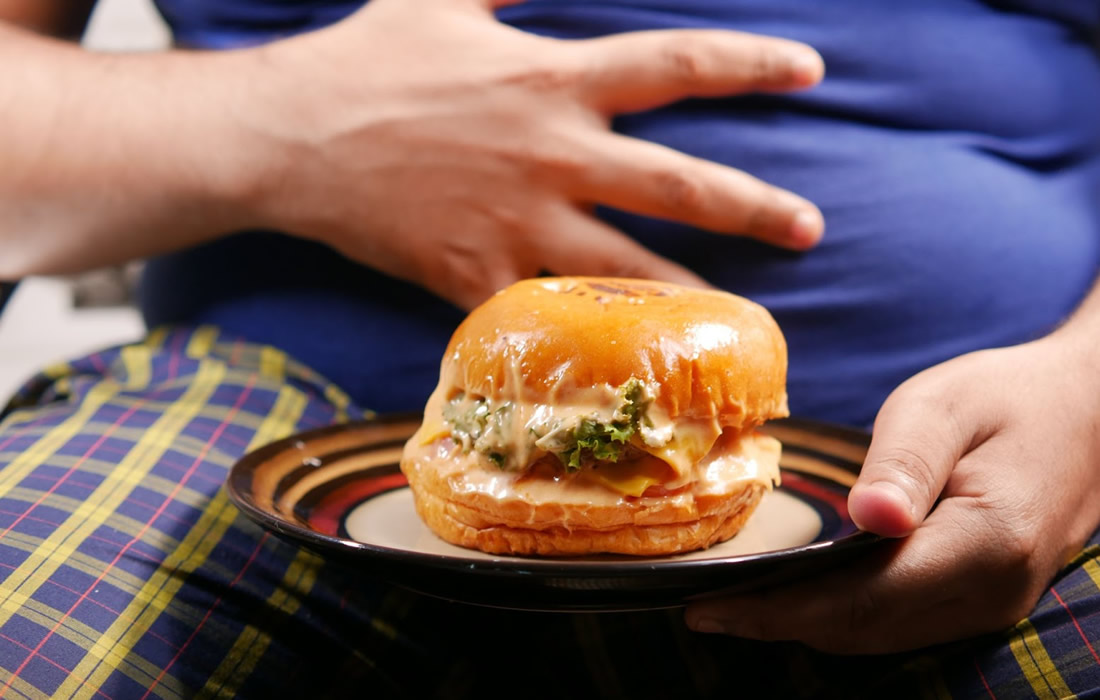Nutrition and Supplements
High-Fat Diets Could Boost Colorectal Cancer
Researchers at the Salk Institute and UC San Diego have discovered how high-fat diets can change gut bacteria and alter digestive molecules called bile acids that are modified by those bacteria, predisposing mice to colorectal cancer.
In the study, the team found increased levels of specific gut bacteria in mice fed high-fat diets. Those gut bacteria, they showed, alter the composition of the bile acid pool in ways that cause inflammation and affect how quickly intestinal stem cells replenish.
“The balance of microbes in the gut is shaped by diet, and we are discovering how alterations in the gut microbial population can create problems that lead to cancer,” says co-senior author and Professor Ronald Evans.
In 2019, Evans and his colleagues showed in mice how high-fat diets boosted the overall bile acid levels. The shift in bile acids, they found, shut down a key protein in the gut — called the Farnesoid X receptor (FXR) — and increased the prevalence of cancer.
In the new work, Evans’ group teamed to examine the microbiomes and metabolomes — collections of dietary and microbially derived small molecules on high-fat diets.
The scientists discovered that although mice fed high-fat diets had more bile acids in their guts, it was a less diverse collection with a higher prevalence of certain bile acids that had been changed by gut bacteria. They also showed that these modified bile acids affected the proliferation of stem cells in the intestines. When these cells don’t replenish frequently, they can accumulate mutations — a key step toward encouraging the growth of cancers, which often arise from these stem cells.
There were also striking differences in the microbiomes of the mice on high-fat diets: the collections of gut bacteria in these mice’s digestive tracts were less diverse and contained different bacteria than the microbiomes of mice not on high-fat diets. Two of these bacteria — Ileibacterium valens and Ruminococcus gnavus — were able to produce these modified bile acids.
The scientists were surprised to discover that a high-fat diet actually had a greater impact on the microbiome and modified bile acids than a genetic mutation that increases cancer susceptibility in the animals.
The researchers believe high-fat diets change the composition of the microbiome, encouraging the growth of bacteria like I. valens and R. gnavus. In turn, that boosts levels of modified bile acids. In a vicious cycle, those bile acids create a more inflammatory environment that can further change the makeup of gut bacteria.
“We’ve deconstructed why high-fat diets aren’t good for you, and identified specific strains of microbes that flare with high-fat diets,” says Evans, March of Dimes Chair in Molecular and Developmental Biology. “By knowing what the problem is, we have a much better idea of how to prevent and reverse it.”
Sources:
Ting Fu, Tao Huan, Gibraan Rahman, Hui Zhi, Zhenjiang Xu, Tae Gyu Oh, Jian Guo, Sally Coulter, Anupriya Tripathi, Cameron Martino, Justin L. McCarville, Qiyun Zhu, Fritz Cayabyab, Brian Low, Mingxiao He, Shipei Xing, Fernando Vargas, Ruth T. Yu, Annette Atkins, Christopher Liddle, Janelle Ayres, Manuela Raffatellu, Pieter C. Dorrestein, Michael Downes, Rob Knight, Ronald M. Evans. Paired microbiome and metabolome analyses associate bile acid changes with colorectal cancer progression. Cell Reports, 2023; 112997 DOI: 10.1016/j.celrep.2023.112997
Salk Institute. “High-fat diets alter gut bacteria, boosting colorectal cancer risk in mice.” ScienceDaily. ScienceDaily, 22 August 2023. <www.sciencedaily.com/releases/2023/08/230822111728.htm>.
Images from:
Photo by Towfiqu Barbhiuya
https://unsplash.com/photos/xs2rdwVoqks

